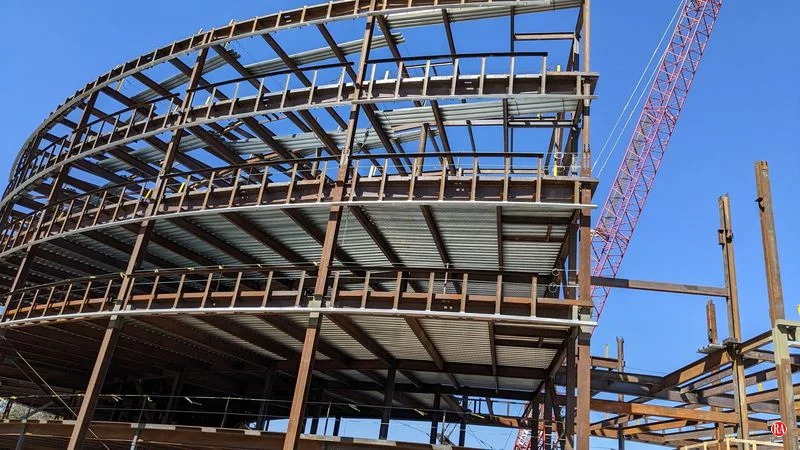How one sentence relaxed CT school construction bidding rules
By: Andrew Brown • Published May 10, 2024
Connecticut lawmakers passed a measure in the final hours of the 2024 legislative session that would roll back a reform that Gov. Ned Lamont’s administration pushed for after the state’s school construction program became the subject of a federal criminal investigation.
A single sentence change in a 254-page bond bill will, if signed by the governor, allow construction managers — the companies that oversee most state building projects — to also bid on the subcontracts for school construction.
That type of contracting, which is frequently referred to as “self-performance,” was advocated for by Kosta Diamantis, the former director of the state’s school construction office who resigned in the wake of the federal grand jury investigation.
Officials at the Department of Administrative Services lobbied lawmakers in 2022 — after Diamantis left state government — to ban construction managers from building portions of the schools projects they were leading.
They argued it created a disadvantage for other companies that were seeking to perform for that work. The main concern was that construction managers would have a leg up over other firms when competing for subcontracts because they already oversee the budgets, schedules and bidding processes for the construction projects.
The vast majority of school building projects in Connecticut are managed by a small group of construction companies.
State lawmakers passed the contracting changes that DAS requested in 2022 as part of an annual budget bill.
“Prohibiting self-performance helps ensure consistency between state and municipal projects, promotes competitive bidding along with opportunity and competition in the trades industry and creates a more level playing field between construction managers and subcontractors,” a DAS spokesperson said a the time.
The repeal of those contracting rules was inserted into the bond bill this week by Rep. Jeff Currey, D-East Hartford.
Currey, who is the son of former DAS Commissioner Melody Currey, told The Connecticut Mirror on Wednesday that he wanted to remove the restrictions on construction mangers because he believed it would save the state money on school building projects.
“We are trying to contain costs when it comes to school construction, and I think that this is one of the ways in which you can do that,” said Currey, who pointed out the construction managers would still be required to submit public bids in order to win the subcontracts.
He argued that local school officials and school building committees would protect against construction managers potentially taking advantage of the setup.
“I think there’s enough safeguards there to ensure that there’s nothing that may wind up being out of compliance with the statute,” he added.
Schools are not the only state-funded projects where lawmakers have attempted to place limitations on construction managers in recent years.
Last session, lawmakers passed a bill that banned the Port Authority from allowing construction managers to bid on subcontracts at projects paid for by the maritime agency.
Legislators took that step after Kiewit, the construction manager overseeing the redevelopment of the State Pier in New London, received approval in 2020 to “self-perform” work on that $300 million project.
That approval by the CT Port Authority board resulted in Kiewit recommending itself and winning subcontracts worth at least $87 million.
State auditors criticized that contracting process in a report last year arguing it created, at the very least, the appearance of a conflict since Kiewit was responsible for reviewing the bids from its competitors.











